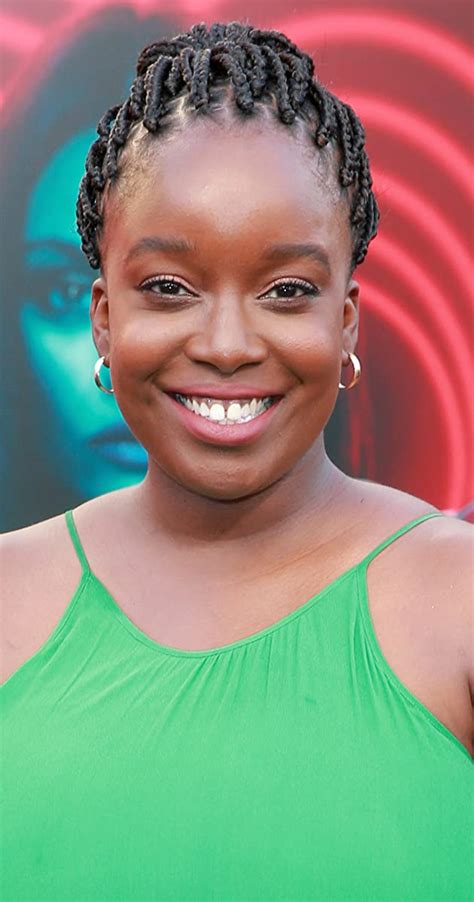A Quote by Gabrielle Aplin
I think being a singer-songwriter... your job is to tell a story that other people can't really tell themselves.
Quote Topics
Related Quotes
I think being a singer-songwriter... your job is to tell a story that other people can't really tell themselves. And I really hope that people kinda go: "This happened once and I kind of like this song because I relate to it..." So if at least one of my songs over this tour's that song, then that's really cool.
If you have to tell a story without speaking, it's sort of like - I come from a dance background, so it's like a ballet where you have to tell a story with just your body. I think that's really interesting to have to tell a story with just your face and your mannerisms, and I'd like to tap into that world.
I think that people have to have a story. When you tell a story, most people are not good storytellers because they think it's about them. You have to make your story, whatever story it is you're telling, their story. So you have to get good at telling a story so they can identify themselves in your story.
If you gauge how you're doing on whether somebody is responding vocally or not, you're up a creek. You can't do that; you kind of have to be inside of your work and play the scene. And tell the story every day. Tell the story. Tell the story. Regardless of how people are responding, I'm going to tell the story.
But when I say it isn't meant for anyone's eyes, I don't mean it in the sense of one of those novel manuscripts people keep in a drawer, insisting they don't care if anyone else ever reads it or not.The people I have known who do that, I am convinced, have no faith in themselves as writers and know, deep down, that the novel is flawed, that they don't know how to tell the story, or they don't understand what the story is, or they haven't really got a story to tell. The manuscript in the drawer is the story.
I think that is what we do by preserving and telling our stories. If you don't tell your stories, other people will tell their story about you. It's important that we nurture and protect these memories. Things change. Existence means change. So, the kind of precious memories about being black for my generation won't exist for my kids' and grandkids' generations unless we preserve them through fiction, through film, through comic books, and every other form of media we can possibly utilize to perpetuate the story of the great African-American people.
The best time to tell your story is when you have to tell your story. When it's not really a choice. But then, when you get that first, messy, complicated version down, you have to read it over and be very tough on yourself and ask, 'Well what's the story here?' If you're lucky enough to have someone you trust looking over your shoulder, he or she can help you if [you] lack perspective on your own story.


































